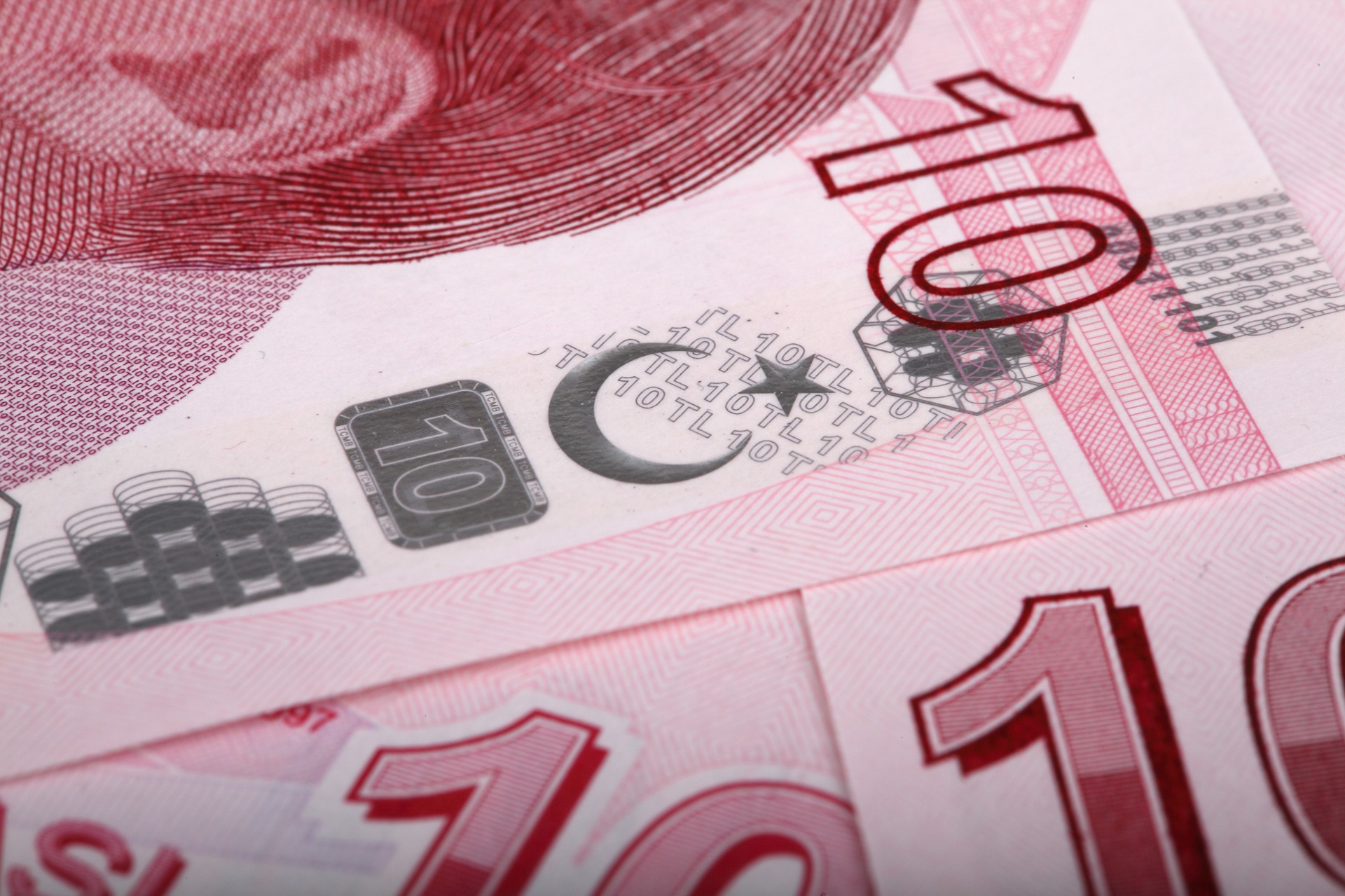The Turkish currency lira shot up to 8.5150 on May 13, 2021. The lira surges higher as the nation faces strong inflation amid coronavirus and business losses.

Turkish Currency Lira Hit by Inflation
The USD/TRY is at 8.4227 levels on Tuesday, May 25, trading within a small range, between 8.3550 and 8.4235 for the past five trading sessions. The dollar against the Turkish currency lira has been surging to life highs in recent times.
In March 2021, the central bank governor Agbal was sacked, and the lira surged almost 15%. The lira rose to 8.4677 on March 30, and the new governor had to promise a tight monetary policy to bring down the currency.
The lira moved higher to 8.4942 on April 26. The life-high level for the USD/TRY is at 8.5829 levels reached in November 2020. No capital control measures have been announced.
Amid inflation, coronavirus infection, and business closures which haunt the country, the currency pair has been surging towards higher levels. The daily count of coronavirus infection is at a record high, as political clashes hit the health sector too.
Turkey Eases Lockdown Measures
The lockdown ended on May 17 in Turkey, and the economy has re-opened partially.
A strict lockdown was enforced in the country between April 29 and May 17, 2021. The 17-day lockdown comes just ahead of the tourist season, which is essential to raise the income of the people in Turkey. The announcement was made after flights to Turkey were banned from Russia. Covid infections are increasing, and Russian tourists are banned from visiting Turkey.
Small businesses are going to face the crunch of the lockdown. Only groceries, butcheries, dessert shops were allowed to open during the lockdown. Small and big businesses wait for financial support from the government. The economy was not doing well before the pandemic, and the new restrictions are hurting the country, lament the citizens of Turkey.
Rent, gas, and electricity costs have surged as inflation has gone up in April. Customers are struggling to make ends meet.
Inflation Rate Highest in April
Inflation in Turkey has climbed higher to 17.14% in April 2021 year on year. In May 2021, it was at 16.19%. It is the highest inflation rate, not seen since May 2019. The lira has weakened with inflation pressure higher in food and non-alcoholic beverages, transport housing and utilities, hotels, restaurants, etc.
Erdogan does not favor high interest rates and repeatedly criticizes this policy. He says that high interest rates harm the economy and raise inflation. However, experts criticize his unorthodox view on interest rates.
Turkey President Recep Tayyip Erdogan has refused to raise interest rates. He has a false notion that high rates cause inflation and are evil. Under his control, three central bank governors have been sacked for not keeping interest rates lower.
The new governor Kavcioglu has promised tighter monetary policy to calm jittery nerves as foreign investors sold their investments in the volatile lira. It is a tricky task for central bank Governor Kavcioglu to balance between high inflation and interest rates. But he is said to be more pliant to President Erdogan’s demands and is sure to bring down rates soon.
Central Bank Governors Dropped for High-Interest Rates
Beret Albayrak, the son-in-law of President Erdogan was blamed for the foreign exchange sale. He had been in office for about two years. In 2019, around $6 billion of foreign holdings had been sold to protect the volatile lira. In 2020, geopolitical conflicts with the US had led to a drop in the lira during the tenure of Albayrak. Gold reserves have also dropped 15% to $89.3 billion within three months of 2020. Albayrak fell out of favor when inflation continued to surge higher, and unrest occurred within the people.
Nazi Agbal is the third governor of the central bank to be sacked in two years. He was dismissed by President Erdogan for no official reason, despite bringing back stability into the economy. Agbal had raised interest rates from 10.25% to 19% in four months, which had earned the ire of the President. His strategy brought some normalcy into the inflation-affected economy, which earned the trust of several foreign investors.
The USD/TRY shot up 15% after he was sacked. Investors fear the monetary policies of the central bank. It also brought unrest in foreign investors, as they sold their investments in the country. They sold their Turkish assets at a fast pace, not seen in15 years.
Sahap Kavcioglu was the next central bank governor. He was a former banker who shares Erdogan’s view that high interest rates drive up inflation. He is the fourth governor who has taken office after 2018. All three of his predecessors have been fired by President Erdogan.
The central bank’s rate-setting meeting is scheduled for June 17. Kavcioglu has promised to keep interest rates tight until inflation comes down.
Kavcioglu has defended the forex 4128 billion, saying it would have depreciated the lira and increased borrowing costs if the authorities had not intervened. In his first monetary policy meeting, Kavcioglu has promised to bring additional tightening.